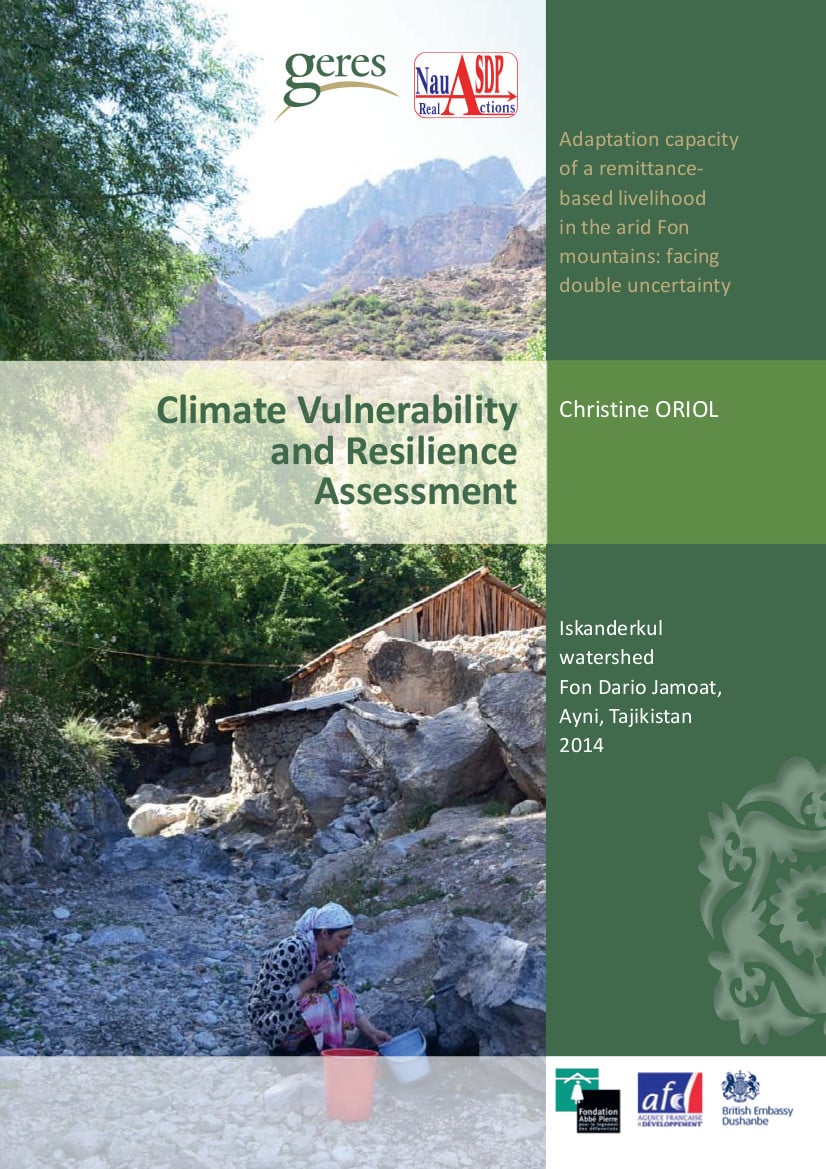Climate vulnerability and resilience assessment in Tajikistan

Tajikistan is considered as the most vulnerable country to climate change in Europe and Central Asia, as it already suffers from low agricultural productivity, water stress, and high losses from disasters.
Tajikistan is characterized by harsh climate conditions: a continental climate with cold winters, remote mountainous areas result in resource scarcity and environmental degradation (deforestation, erosion and desertification).
To better understand the local impacts of Climate Change in mountainous Tajikistan, GERES conducted a Climate Vulnerability and Capacity Assessment of the communities living in Iskander Dario valley (Ayni disctrict).
The major changes observed by surveyed households included increased temperatures, particularly in spring and melting glaciers. The observations are consistent with meteorological data for the area.
Armed with a clearer understanding of local impacts, the project raised awareness of 45 local institutions (Mahallas, Jamoat, Khukumat, NGOs) about climate change risks and needs for local adaptation strategy development.
Information
- Edition: Geres
- Authors: Christine Oriol
- Year: 2014
- Languages: English, Russian
- Pages: 60
DOWNLOAD
Climate vulnerability and resilience assessment
Climate vulnerability and resilience assessment
Synthesis of the study Climate vulnerability and resilience assessment
Synthesis of the study Climate vulnerability and resilience assessment
WOULD YOU LIKE TO TAKE ACTION
AND SUPPORT WHAT WE DO?
Tell us who you are and find your means of action.
